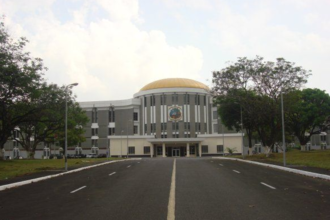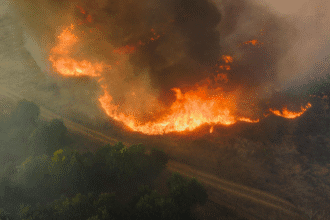Amira, a seven-month pregnant girl, led a desperate and dangerous voyage to the Sudan war crisis–the center of the violent conflict that dominated her homeland. When her home in En Nahud, West Kordofan, was captured by paramilitary Rapid Support Forces (RSF), she was forced to leave behind a war zone to begin a life of fear, struggle, and hope.
The hospitals had been closed, the pharmacies were not supplied, and transport was almost impossible to obtain. But when there was no protective recourse left, Amira and her husband went to the road. The next thing that came was a quest full of danger, mistreatment, and unpredictability- but also survival.
Amira is currently in the capital of Uganda, Kampala, awaiting the birth of her first child. Her narration shows how perilous the circumstances of non-combatants are when there is a fight in Sudan, and the courage needed to survive it.
Why did Amira decide to walk away from En Nahud?
West Kordofan is now a battlefield in the Sudan war crisis, and the people have found themselves caught in the middle of two warring factions, the Sudanese army and the RSF. When the militants of RSF invaded En Nahud, Amira confronted a big, frightening reality: the crumbling healthcare system, the surging prices of traveling, and almost no means of transport.
Remaining would expose her to the death of her life and the future of her unborn baby. She was frightened that the window, which she could use to escape, would soon be shut. It could not be an easy step, but it had to be done. Here is the link to our article on Italy Women’s Violence.
What Crowds Did She Step Over on the Way?
Since the start, the trip has been unstable. Armed RSF drivers drove the trucks and often intimidated or extorted passengers. Amira narrated an occasion when a gun was drawn during an argument over who to sit where, and everyone stood terrified.
The truck was congested–80 people crowded in, hanging to one another and to their luggage along potholed roads and riverbeds. There was always a threat of violence, and checkpoints had to be passed through by bribing frequently.
There was famine and there was water scarcity, and there was hardly rest. Cars failed, and at some point, Amira was on the ground only with a bblanketand she was scared that she would not make it through the night.
How Did Ethnic Tensions Escalate the Danger?
The Sudan war crisis has been characterized not only by fighting but also by increasing ethnic violence. Her husband, Amira, has no military affiliation but is of an ethnic community believed to have affiliations with RSF. The soldiers were reported to start engaging in indiscriminate killing of people based on their ethnic backgrounds in the captured cities, such as El-Fulaa.
They were afraid to be arrested, beaten, or even killed. This panic was further fuelled by the extrajudicial killings as military personnel tightened the screws on any suspected RSF partners. Here is the link to our article on Kentucky Women Killed.
What Role Did Militias and Militants Play in Her Escape?
The drivers and militias connected with RSF had a say in almost all factors of travelling. There were no fixed prices. Violence was common. Even the internet, which could be accessed previously through a Starlink device under RSF control, was a threat.
Amira mentioned that, even just listening to a ringtone or watching a video that was associated with the Sudan military could lead to arrest. They were accompanied everywhere, at all the checkpoints, all the borders, all the villages by paranoia and tension.
How Did She Finally Reach Safety?
Amira, together with her husband, arrived at the South Sudan capital, Juba, and used a bus to Uganda after days of uncertainty. The heavy rain and flooding, as well as mechanical breakdowns slowed down their last moments of their journey.
Transport was further threatened when their vehicle-full of barrels of fuel, often became stuck in mud. Their clothing got wet, and their possessions were destroyed, and they moved forward, hoping they could be safe. Eventually, they reported from Kampal, albeit starved but alive.
What Will the Future Be Like for Amira?
Having become safe, Amira confronts motherhood with ambivalent feelings. She is terrified of people who remain in Sudan as a women’s rights activist and a pro-democracy activist. There were arrests of some of her civil society members, and both the RSF and the Sudan military treated civilians with suspicion and antagonism.
Amira is optimistic even after she escapes one of the most violent periods of the war crisis in Sudan. She envisions coming back one day with her child, when it is not fear, but safety that will characterize the future of Sudan.
Final Thoughts
Millions of people have been displaced, and millions of families pinned down to the wall by the Sudan war crisis. It is not only the story of Amira, but rather the allegory of the overall humanitarian crisis that is still occurring. The world should not turn a blind eye as the war becomes more intense. Peace, protection, and accountability have never been needed any more than now.








